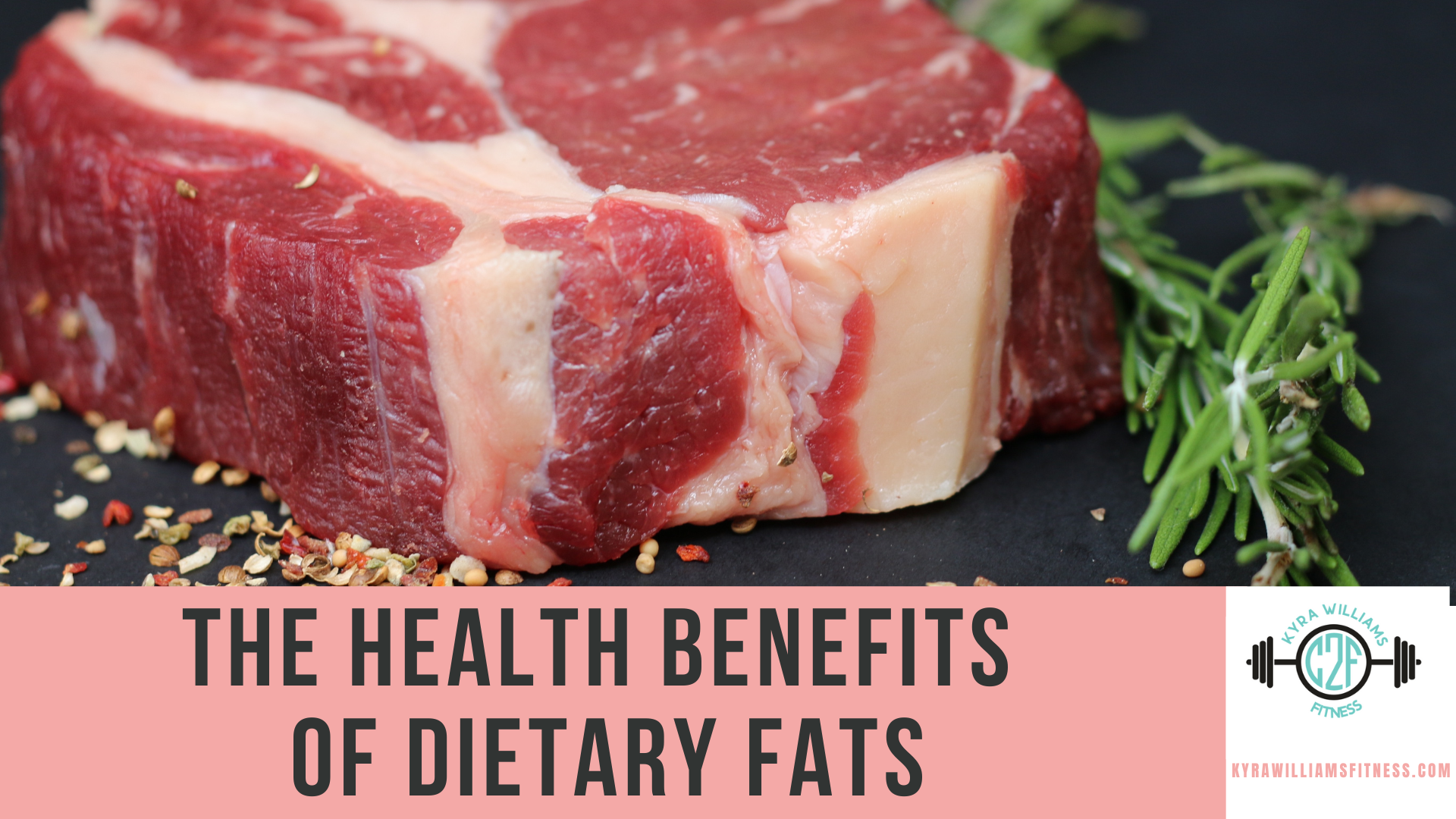For years, dietary fat was viewed as the villain in the nutrition world, we now know the health benefits of dietary fats. From supporting hormone production to providing energy and aiding in nutrient absorption, dietary fats play a critical role in how our bodies function.
In this post, we’ll explore why fat deserves a place on your plate and how choosing the right types of fat can help you feel energized, healthy, and on track with your fitness goals.
Dietary fats can be broken down into several types, each with unique properties and effects on health. Here’s an overview of the categories and benefits and health risks associated with each. Here are the health benefits of dietary fats.
1. Monounsaturated Fats
These fats are generally considered beneficial for heart health and can help improve cholesterol levels. Monounsaturated fat is found in olive oil, avocados, almonds, cashews, and peanut butter. This kind of fat supports heart health, reduces inflammation, and helps regulate blood sugar
2. Polyunsaturated Fats AKA PUFAS
Here’s the tricky thing about PUFAS.. they also include omega-3 and omega-6 fatty acids, which we know are beneficial for brain health, reducing inflammation, and promoting cardiovascular health. Omega 3’s and Omega 6 fatty acids are found in fatty fish (like salmon), flaxseeds, walnuts, and sunflower oil.
However, polyunsaturated fatty acids like those found in vegetable oils (e.g., canola, soybean, sunflower), have sparked debate in the health community. While some are essential in small amounts (like omega-3s and omega-6s), excess consumption of certain PUFAs can negatively impact health.
Many PUFAs, especially omega-6 fatty acids, promote the production of inflammatory molecules. While some inflammation is normal, chronic, low-grade inflammation can contribute to issues like heart disease, insulin resistance, and obesity.
Polyunsaturated fatty acids can cause oxidative stress as they are chemically unstable. This makes them prone to oxidation when exposed to heat, light, or air. Oxidized fats produce harmful free radicals, which can damage cells, increase oxidative stress, and raise the risk of chronic diseases like cancer and cardiovascular disease. This is why cooking with vegetable oils at high heat is discouraged.
Overconsumption of PUFA’s, particularly ones found in a lot of processed foods can lead to disruption of a healthy Omega-3 to Omega-6 balance. A healthy ratio of omega-3 to omega-6 fats is crucial for regulating inflammation. However, modern diets are often overloaded with omega-6s. This tips the balance and reducing the anti-inflammatory effects of omega-3s (found in fish, flaxseed, and walnuts). This imbalance is associated with increased risks of metabolic syndrome, mood disorders, and obesity.
For optimal health, it’s generally better to reduce processed oils and prioritize whole-food sources of fats. Foods like avocados, olive oil, nuts, seeds, and fatty fish are great sources of these. It’s important to maintain a healthy ratio between the two—many diets tend to be too high in omega-6s, contributing to chronic inflammation.
3. Saturated Fats
These are found in butter, coconut oil, cheese, red meat, and dairy products. Once thought to be harmful, recent research suggests they may not be as bad as previously believed, especially if consumed in moderation and as part of an overall healthy diet. They can raise both HDL (good) and LDL (bad) cholesterol levels. Nowadays we understand the benefits (and joy) we can receive from cooking in pork lard, beef tallow, duck fat, grass fed butter and ghee. But, everything in moderation though, of course!
4. Trans Fats
Trans fats are found in processed foods, margarine, baked goods, and fried foods. These are artificially created by hydrogenating oils to make them solid at room temperature. They raise LDL cholesterol, lower HDL cholesterol, and increase the risk of heart disease. Most countries now regulate or ban trans fats due to their negative health effects.
5. Medium-Chain Triglycerides
You can find MCT’s in coconut oil and MCT oil supplements. MCTs are digested quickly and can provide a quick energy source, often used in ketogenic diets for fat-burning benefits.
I hop you have learned all of the the health benefits of dietary fats and are ready to add them into your nutrition protocol today. You can also get more details about this in my podcast about dietary fats here.
Your Coach,
Kyra
Do you need help determine the right amount of fat and healthy sources for you?
Let’s work together! We can create a nutrition program that will help you feel and look your very best!
Sign up to work with me at KyraWilliamsFitness.com/signup
